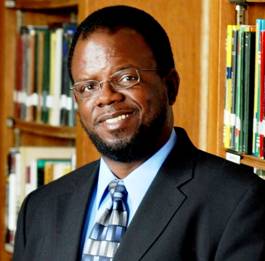William A. Massey (mathematician) facts for kids
Quick facts for kids
William A Massey
|
|
|---|---|
 |
|
| Born | 1956 (age 69–70) |
| Occupation | Edwin S Wilsey Professor of Princeton University |
| Parent(s) | Juliete and Richard Massey |
William Alfred Massey is an American mathematician and a professor at Princeton University. He is a top expert in a field called operations research. This field uses math to solve real-world problems. He also knows a lot about something called queueing theory. This helps understand waiting lines, like at a store or for a computer.
Who is William Massey?
William Alfred Massey is a very smart American mathematician. He teaches at Princeton University. He is known for his work in operations research. This is a type of math that helps businesses and organizations make better decisions. He also specializes in queueing theory. This helps us understand how waiting lines work. Think about waiting for a bus or for your turn at a video game.
Early Life and Education
William Massey was born in Jefferson City, Missouri in 1956. His parents, Juliette and Richard Massey Sr., were both teachers. When he was four years old, his family moved to St. Louis, Missouri.
He went to college at Princeton University. He finished his studies there in 1977. Later, he earned his Ph.D. from Stanford University in 1981. His main study was about queueing theory.
A Career in Math
While still a student, William Massey worked at Bell Laboratories. This is a famous research center. He published his first research paper in 1978. After getting his Ph.D., he became a full-time researcher at Bell Labs.
In 2001, Professor Massey moved to Princeton University. He became a professor there. He was the first African-American student from Princeton to return as a faculty member. This was a big achievement!
Awards and Recognition
Professor Massey has received many awards for his work.
- In 2006, he won the Blackwell–Tapia Prize. This award recognized his great achievements in math. It also honored his work in helping minority students and women in math.
- He was also chosen as a Fellow of the Institute for Operations Research and the Management Sciences in 2006.
- In 2012, he became a Fellow of the American Mathematical Society.
- In 2018, he was honored by "Mathematically Gifted & Black." This was part of Black History Month.
 | James Van Der Zee |
 | Alma Thomas |
 | Ellis Wilson |
 | Margaret Taylor-Burroughs |

